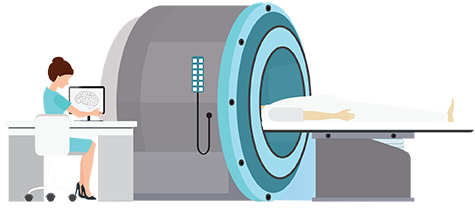

Attending radiology school may be the start of a rewarding career in health care. In these programs, students interested in using technology to help doctors diagnose and treat patients can learn about fields such as radiography, radiation therapy and medical resonance imaging. Students may not only learn how to use such technology as MRI and X-ray machines, but also to perform sonograms, mammograms and other tests, and how to work with patients to ensure the best results and utmost safety for all involved.
Many prospective students may have heard of a radiologist, who is a medical doctor responsible for the actual diagnosis and treatment options, but be unfamiliar with the many opportunities that exist at the technologist or technician level within the field. These occupations include:
For a relatively small state, Massachusetts has quite a large number of colleges, universities and postsecondary schools, many of which offer radiology programs. Here is a list of some of those schools, according to the National Center for Education Statistics:
The core responsibility of a radiological technologist is to produce diagnostic images, but depending on the educational path that is chosen, that may just be the beginning. The steps to pursuing this career may include:
The table below shows the average annual salaries for several different radiology jobs in Massachusetts, according to the BLS, as well as the number of people employed in each job.
| Career | Total Employment | Annual Mean Wage |
|---|---|---|
| Cardiovascular Technologists and Technicians | 1,360 | 77,500 |
| Diagnostic Medical Sonographers | 1,990 | 82,450 |
| Magnetic Resonance Imaging Technologists | 1,100 | 83,550 |
| Nuclear Medicine Technologists | 680 | 79,760 |
| Radiologic Technologists | 4,210 | 72,840 |
Massachusetts Radiological Society
P.O. Box 54-9132
Waltham, MA 02454-9132
[email protected]
781-434-7313
http://www.massrad.org/
Massachusetts State Department of Health
90 Washington St.
Dorchester, Massachusetts 02121
(617) 427-2944
http://www.mass.gov/